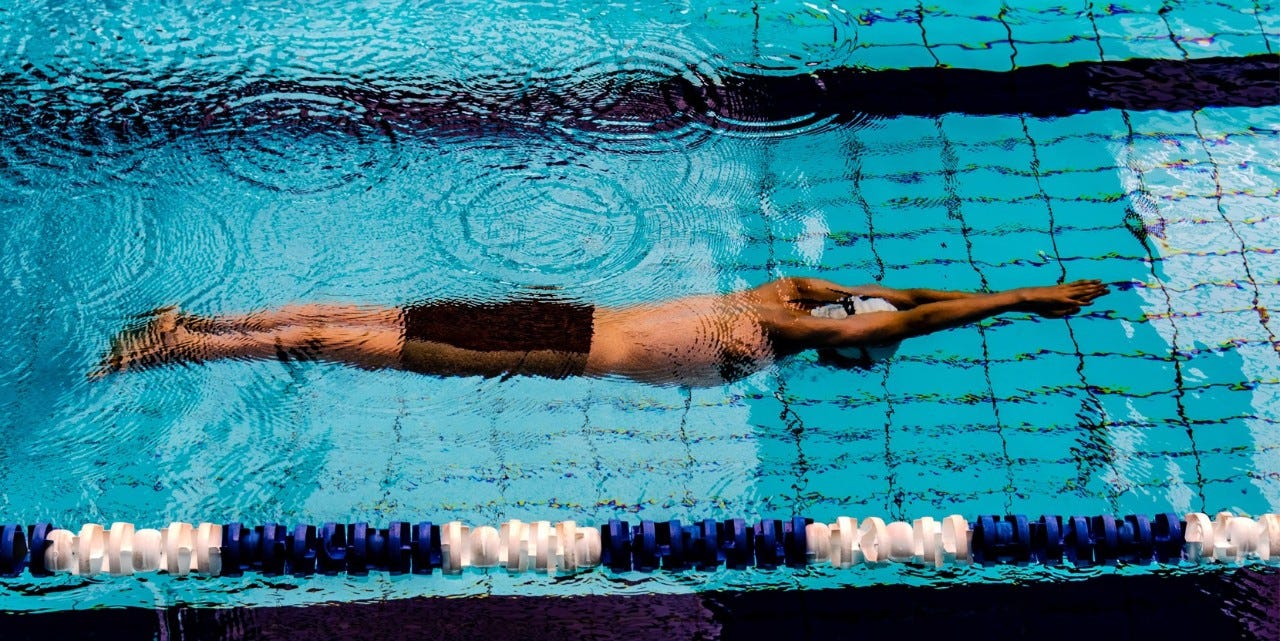Does swimming make you stronger?
Swimming is healthy, but does it make you stronger? Of course, says swimming coach Toby Herrlich.

Swimming is healthy. It strengthens the heart, muscles and stamina – and is also easy on the joints. Swimming coach Toby Herrlich explains what the sport is all about and why even experienced swimmers benefit from swimming lessons.
Swimming is an endurance sport, but professional swimmers have extremely powerful upper bodies – why is that?
As well as spending four to six hours a day in the water, top athletes also put in the hours in the weights room to improve their performance in the pool. Here, they focus primarily on training their cardiovascular endurance and building up the muscles they need to be effective over longer periods. The muscle structure of a swimmer who has to perform at full power for two to three minutes is completely different to that of a weightlifter who has to lift 200 kg for two seconds.
How often and how long should a “normal person” spend in the water?
Two to three times a week is ideal for anyone wanting to improve their fitness through swimming. A great distance to aim for is between one and two kilometres. For an additional training effect, you can add specific strength training exercises. For example, you can use plastic hand paddles to increase the water resistance with every stroke and put extra pressure on the muscles. However, it’s crucial to learn the right technique before increasing any strain on the muscles.
Speaking of technique, would people who can already swim also benefit from a swimming lesson?
Absolutely! Correcting a small detail can often make all the difference. Suddenly you can swim faster for longer without putting in any extra effort. And you’ll enjoy swimming all the more for it.
Swimming lengths for hours can be quite monotonous – do you have any tips on how to banish boredom from the water?
It’s simple. To stay motivated, all you have to do is switch between the four strokes – crawl, breaststroke, backstroke and butterfly – and vary the lengths you do. The number of lengths you swim isn’t important; it’s how you swim them.


